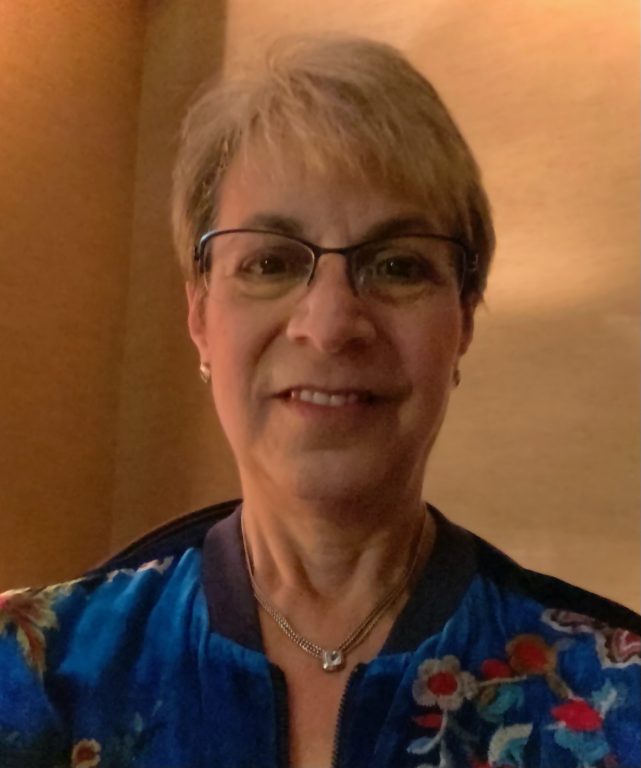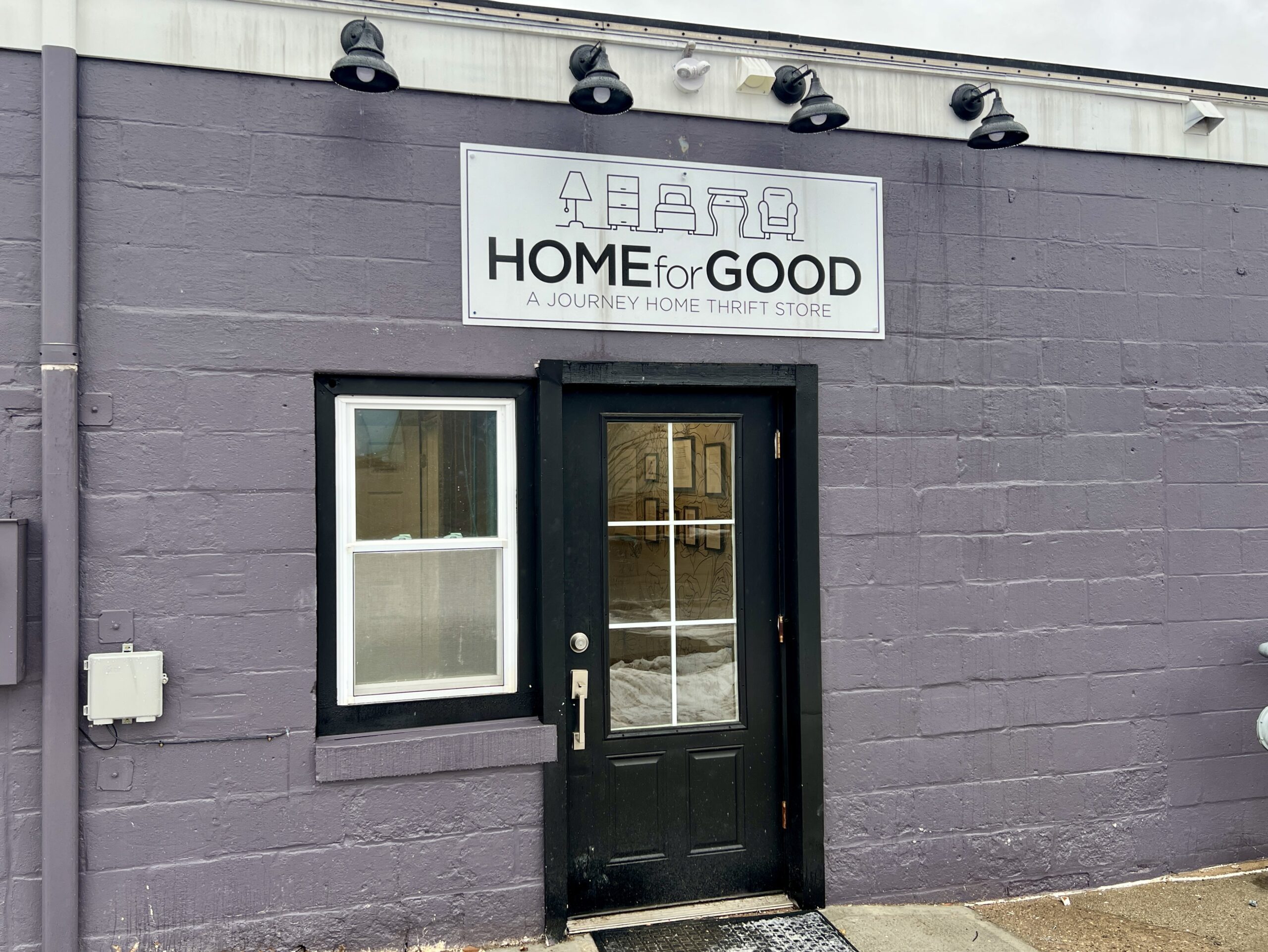College Bound: What Do You Do Now? College Admissions After Affirmative Action

Audio By Carbonatix

Campus of UMass Amherst. Photo credit: Ronni Newton
We-Ha.com will be publishing a series of essays/blogs/reflections on the issue of going to college – primarily a set of thoughts and musings, along with some practical advice, intended to support students and parents as they embark on this journey. While many of our readers are experts in this topic, many others are less knowledgeable and have little outside support. We hope this is helpful to all readers as they go through the various stages of getting into and getting something out of college.

Adrienne Leinwand Maslin. Courtesy photo
By Adrienne Leinwand Maslin
By this time you have all read or heard about the decision by the United States Supreme Court regarding affirmative action. If you are a student – or the parent of a student – who has just entered your senior year in high school you probably already know that, as a result of the SCOTUS decision, colleges and universities throughout the country will focus intently on the essay portions of the application this year. Let’s take a look at the decision and see why this is so.
In short, SCOTUS has scuttled affirmative action. U.S. colleges and universities may no longer consider race, among other factors, to select applicants for admission. But, Chief Justice John Roberts, who wrote the majority opinion, did leave the door slightly ajar with this statement: “Nothing in this opinion should be construed as prohibiting universities from considering an applicant’s discussion of how race affected his or her life.” So, how confused are we? Very. According to a recent article in the New York Times Magazine, most individuals and organizations are still quite unsure of how to advise students and college admissions officers are still determining how they will proceed (Cheung, Jessica, “Applying Blind,” The New York Times Magazine, September 10, 2023, pp. 36-41).
On Monday, Aug. 14, 2023, the Justice Department and the Department of Education jointly issued official guidance for colleges and universities. In her remarks, Associate Attorney General Vanita Gupta said: “On the topline issue of considering race in admissions, colleges and universities can and should continue to ensure that their doors are open to those students of all backgrounds, including students of color, who possess the characteristics necessary to succeed and contribute on college campuses and in the world. Those include grit and perseverance, curiosity and academic and personal excellence. The Supreme Court’s opinion recognized what we know to be true: that race can be relevant to a person’s life or lived experience, and may impact one’s development, motivations, academic interests or personal or professional aspirations. That impact can still be considered in university admissions.”
The Biden administration’s guidance also tells us that colleges and universities can include race in decisions about where to target recruitment efforts, as long as those efforts do not result in admissions preferences for the targeted groups.
This, to me, is of considerable importance. My biggest fear regarding the Supreme Court’s decision is that fewer Black and Hispanic students will consider applying to the elite colleges and universities, either because they believe they will no longer be accepted without affirmative action or because they do not want to apply to colleges where there may no longer be a critical mass of students of color. This would be unfortunate because the biggest deterrent to admitting a diverse class of students is the lack of a diverse applicant pool.
What the Biden administration’s guidance does not discuss are issues dealing with financial aid and the use of race-conscious scholarships. For that we will have to wait and see. And, I think in the years to come there will be a great deal more to be learned about the full scope of the Supreme Court’s decision. For example, the Biden administration believes “that belonging and retention resources directed at minority students fell within the law, as long as the resources are ‘available to all students regardless of race.'” However, many legal scholars do not agree with this assessment.
Those of you – which probably includes most of you – who are applying to colleges through the Common App will find that this year’s Common App essay prompts (see below) have remained the same as last year’s. This is because the Common App essay choices provide several opportunities to address the ways in which students may have been affected by race. Many colleges, such as the University of Connecticut, rely on only the Common App essay prompts and do not have any supplemental essay questions. Others, however, have modified and added supplemental questions to their individual admissions applications in an attempt to generate an incoming class of students who are racially and ethnically diverse despite the elimination of affirmative action. As an example, Kathryn Balcerski, Babson College’s senior external communications manager, said in an email to Inside Higher Ed that Babson’s new prompt is specifically “related to the Supreme Court decision” on affirmative action. She went on to say that “In moving to a competency-based application review process in our individualized holistic review of applicants, we seek to identify qualities in applicants that serve the institutional mission at Babson College.”
Similarly, in the same article, we learn that the University of Massachusetts at Amherst also added a new essay prompt as a “direct result of the Supreme Court ruling.” Ed Blaguszewski, UMass’s executive director of media relations, said, “This is a new essay prompt for students and it’s there to give applicants an additional opportunity to help us understand their background and experiences. While the court stated that even though race/ethnicity itself cannot be considered, the impact it has had on the applicant can be considered.”
So what should you, as an applicant, be prepared for? As I said, the Common App’s essay prompts are the same as last year. I have included them below and you will find that they provide plenty of opportunity to discuss how race may have impacted your life.
Common App essay prompts for 2023-2024:
- Some students have a background, identity, interest, or talent that is so meaningful they believe their application would be incomplete without it. If this sounds like you, then please share your story.
- The lessons we take from obstacles we encounter can be fundamental to later success. Recount a time when you faced a challenge, setback, or failure. How did it affect you, and what did you learn from the experience?
- Reflect on a time when you questioned or challenged a belief or idea. What prompted your thinking? What was the outcome?
- Reflect on something that someone has done for you that has made you happy or thankful in a surprising way. How has this gratitude affected or motivated you?
- Discuss an accomplishment, event, or realization that sparked a period of personal growth and a new understanding of yourself or others.
- Describe a topic, idea, or concept you find so engaging that it makes you lose all track of time. Why does it captivate you? What or who do you turn to when you want to learn more?
- Share an essay on any topic of your choice. It can be one you’ve already written, one that responds to a different prompt, or one of your own design.
Supplemental essay questions from a select group of popular institutions appear below. You will see how creative and original colleges and universities have been in order to provide applicants ample opportunity to consider the ways race may have impacted their lives.
Brandeis University: Brandeis was established 75 years ago to address antisemitism, racism, and gender discrimination in higher education, and today, the university remains dedicated to its founding values of inclusivity and justice. How has your educational experience shaped your perspective on these values?
Columbia University: A hallmark of the Columbia experience is being able to learn and thrive in an equitable and inclusive community with a wide range of perspectives. Tell us about an aspect of your own perspective, viewpoint or lived experience that is important to you, and describe how it has shaped the way you would learn from and contribute to Columbia’s diverse and collaborative community. AND In college/university, students are often challenged in ways that they could not predict or anticipate. It is important to us, therefore, to understand an applicant’s ability to navigate through adversity. Please describe a barrier or obstacle you have faced and discuss the personal qualities, skills or insights you have developed as a result.
Emory University: Reflect on a personal experience where you intentionally expanded your cultural awareness. AND Emory University has a strong commitment to building community. Tell us about a community that you have been part of where your participation helped to change or shape the community for the better.
Babson College: A defining element of the Babson experience is learning and thriving in an equitable and inclusive community with a wide range of perspectives and interests. Please share something about your background, lived experiences, or viewpoint(s) that speaks to how you will contribute to and learn from Babson’s collaborative community.
The University of Massachusetts at Amherst: At UMass Amherst, no two students are alike. Our communities and groups often define us and shape our individual worlds. Community can refer to various aspects, including shared geography, religion, race/ethnicity, income, ideology, and more. Please choose one of your communities or groups and describe its significance. Explain how, as a product of this community or group, you would enrich our campus.
Sarah Lawrence College: In the syllabus of a 2023 majority decision of the Supreme Court written by Chief Justice John Roberts, the author notes: “Nothing prohibits universities from considering an applicant’s discussion of how race affected the applicant’s life, so long as that discussion is concretely tied to a quality of character or unique ability that the particular applicant can contribute to the university.” Drawing upon examples from your life, a quality of your character, and/or a unique ability you possess, describe how you believe your goals for a college education might be impacted, influenced, or affected by the Court’s decision.
Dartmouth College: There is a Quaker saying: Let your life speak. Describe the environment in which you were raised and the impact it has had on the person you are today.
Johns Hopkins University: Tell us about an aspect of your identity (e.g. race, gender, sexuality, religion, community, etc.) or a life experience that has shaped you as an individual and how that influenced what you’d like to pursue in college at Hopkins?
Duke University: We recognize that “fitting in” in all the contexts we live in can sometimes be difficult. Duke values all kinds of differences and believes they make our community better. Feel free to tell us any ways in which you’re different, and how that has affected you or what it means to you.
Stanford University: Virtually all of Stanford’s undergraduates live on campus. Write a note to your future roommate that reveals something about you or that will help your roommate – and us – get to know you better.
A different approach to this issue was taken by Lafayette College in Easton, PA. Rather than add or change any essay prompts, it has reduced, from 10 to six, the number of extracurricular activities its admissions staff will consider from an individual applicant. Lafayette believes this step will level the playing field for applicants who have after-school responsibilities caring for family members or working and are unable to participate in a long list of clubs, sports, music lessons, etc.
Nicole Hurd, president of Lafayette said,“I’m not even sure students know that teaching an elderly family member English or going to babysit a cousin is actually an activity that’s meaningful. We’re looking for curiosity and resilience and inquisitiveness and commitment, and all those things show up in things that they might not consider an ‘activity.'”
As with the writing of college essays in previous years, it is incumbent upon the applicant to write a good essay. An essay in which you have a story to tell and you unfold your story in a thoughtful, coherent, grammatically correct, and typographically error-free way. In their book The Black Family’s Guide to College Admissions, Timothy L. Fields and Shereem Herndon-Brown stress that you cannot simply say you are of a particular race. You need to explain how you believe your background, whether it be a particular race, ethnicity, or disadvantage, impacted your life. (Timothy L. Fields and Shereem Herndon-Brown, The Black Family’s Guide to College Admissions: A Conversation about Education, Parenting, and Race, John’s Hopkins University Press, September 6, 2022).
Although I am not of minority background, I do know how to write a good essay. If you are considering responding to a prompt for which you would discuss issues of race or adversity, here are some questions to consider: Do you think your race, your financial situation, or other factor affected how you developed as a person? Is there a specific incident that illustrates this? Why was this particular incident so important? How did it make you feel? Did you change or do you think your life changed because of it? In what ways? What did you learn from your experiences? Can you take what you learned and apply it to other life situations or help you contribute to your college community? These are some of the questions to ask yourself if you are going to address issues of race, ethnicity, or disadvantage in your essays.
If you’ve been reading these columns, you know that the college application process is arduous, anxiety-producing, highly specific, complicated, and changes more frequently than we would like it to. No sooner do we think we understand what we need to do, the requirements change. Either because the law requires it or because colleges change their policies. But don’t panic! There are many resources – most importantly your high school counselor or advisor. And there are free online resources and resources in your high school and public library. An excellent article in Forbes identifies some of the best books on the application process. Another good online resource can be found here. Finally, don’t forget about your English teacher. They know what a good essay is all about!
Adrienne Leinwand Maslin recently retired from a 45-year career in higher education administration. She has worked at public and private institutions, urban and rural, large and small, and two-year and four-year, and is Dean Emerita at Middlesex Community College. She has held positions in admissions, affirmative action, president’s office, human resources, academic affairs, and student affairs. Maslin has a BA from the University of Vermont, an MEd from Boston University, and a PhD from the University of Oregon. She is presently creating a TV/web-based series on life skills and social issues for 9-12 year olds believing that the more familiar youngsters are with important social issues the easier their transition to college and adulthood will be. Information about this series as well as contact information can be found at www.shesroxanne.com.
Like what you see here? Click here to subscribe to We-Ha’s newsletter so you’ll always be in the know about what’s happening in West Hartford! Click the blue button below to become a supporter of We-Ha.com and our efforts to continue producing quality journalism.




[…] This content was originally published here. […]